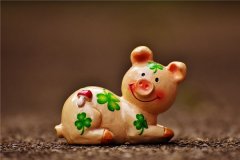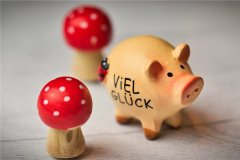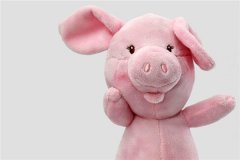The Master said of Kung-ye Ch'ang that he might be wived; althoughhe was put in bonds, he had not been guilty of any crime. Accordingly,he gave him his own daughter to wife.
Of Nan Yung he said that if the country were well governed he wouldnot be out of office, and if it were in governed, he would escapepunishment and disgrace. He gave him the daughter of his own elderbrother to wife.
The Master said of Tsze-chien, "Of superior virtue1 indeed is sucha man! If there were not virtuous2 men in Lu, how could this man haveacquired this character?"Tsze-kung asked, "What do you say of me, Ts'ze!" The Master said,"You are a utensil3." "What utensil?" "A gemmed4 sacrificial utensil."Some one said, "Yung is truly virtuous, but he is not ready with histongue."The Master said, "What is the good of being ready with the tongue?
They who encounter men with smartness of speech for the most partprocure themselves hatred5. I know not whether he be truly virtuous,but why should he show readiness of the tongue?"The Master was wishing Ch'i-tiao K'ai to enter an official employment.
He replied, "I am not yet able to rest in the assurance of this."The Master was pleased.
The Master said, "My doctrines6 make no way. I will get upon a raft,and float about on the sea. He that will accompany me will be Yu,I dare say." Tsze-lu hearing this was glad, upon which the Mastersaid, "Yu is fonder of daring than I am. He does not exercise hisjudgment upon matters."Mang Wu asked about Tsze-lu, whether he was perfectly7 virtuous. TheMaster said, "I do not know."He asked again, when the Master replied, "In a kingdom of a thousandchariots, Yu might be employed to manage the military levies8, butI do not know whether he be perfectly virtuous.""And what do you say of Ch'iu?" The Master replied, "In a city ofa thousand families, or a clan9 of a hundred chariots, Ch'iu mightbe employed as governor, but I do not know whether he is perfectlyvirtuous.""What do you say of Ch'ih?" The Master replied, "With his sash girtand standing10 in a court, Ch'ih might be employed to converse11 withthe visitors and guests, but I do not know whether he is perfectlyvirtuous."The Master said to Tsze-kung, "Which do you consider superior, yourselfor Hui?"Tsze-kung replied, "How dare I compare myself with Hui? Hui hearsone point and knows all about a subject; I hear one point, and knowa second."The Master said, "You are not equal to him. I grant you, you are notequal to him."Tsai Yu being asleep during the daytime, the Master said, "Rottenwood cannot be carved; a wall of dirty earth will not receive thetrowel. This Yu,-what is the use of my reproving him?"The Master said, "At first, my way with men was to hear their words,and give them credit for their conduct. Now my way is to hear theirwords, and look at their conduct. It is from Yu that I have learnedto make this change."The Master said, "I have not seen a firm and unbending man." Someone replied, "There is Shan Ch'ang." "Ch'ang," said the Master, "isunder the influence of his passions; how can he be pronounced firmand unbending?"Tsze-kung said, "What I do not wish men to do to me, I also wish notto do to men." The Master said, "Ts'ze, you have not attained12 to that."Tsze-kung said, "The Master's personal displays of his principlesand ordinary descriptions of them may be heard. His discourses13 aboutman's nature, and the way of Heaven, cannot be heard."When Tsze-lu heard anything, if he had not yet succeeded in carryingit into practice, he was only afraid lest he should hear somethingelse.
Tsze-kung asked, saying, "On what ground did Kung-wan14 get that titleof Wan?"The Master said, "He was of an active nature and yet fond of learning,and he was not ashamed to ask and learn of his inferiors!-On thesegrounds he has been styled Wan."The Master said of Tsze-ch'an that he had four of the characteristicsof a superior man-in his conduct of himself, he was humble15; in servinghis superior, he was respectful; in nourishing the people, he waskind; in ordering the people, he was just."The Master said, "Yen16 P'ing knew well how to maintain friendly intercourse17.
The acquaintance might be long, but he showed the same respect asat first."The Master said, "Tsang Wan kept a large tortoise in a house, on thecapitals of the pillars of which he had hills made, and with representationsof duckweed on the small pillars above the beams supporting the rafters.-Ofwhat sort was his wisdom?"Tsze-chang asked, saying, "The minister Tsze-wan thrice took office,and manifested no joy in his countenance18. Thrice he retired19 from office,and manifested no displeasure. He made it a point to inform the newminister of the way in which he had conducted the government; whatdo you say of him?" The Master replied. "He was loyal." "Was he perfectlyvirtuous?" "I do not know. How can he be pronounced perfectly virtuous?"Tsze-chang proceeded, "When the officer Ch'ui killed the prince ofCh'i, Ch'an Wan, though he was the owner of forty horses, abandonedthem and left the country. Coming to another state, he said, 'Theyare here like our great officer, Ch'ui,' and left it. He came to asecond state, and with the same observation left it also;-what doyou say of him?" The Master replied, "He was pure." "Was he perfectlyvirtuous?" "I do not know. How can he be pronounced perfectly virtuous?"Chi Wan thought thrice, and then acted. When the Master was informedof it, he said, "Twice may do."The Master said, "When good order prevailed in his country, Ning Wuacted the part of a wise man. When his country was in disorder20, heacted the part of a stupid man. Others may equal his wisdom, but theycannot equal his stupidity."When the Master was in Ch'an, he said, "Let me return! Let me return!
The little children of my school are ambitious and too hasty. Theyare accomplished21 and complete so far, but they do not know how torestrict and shape themselves."The Master said, "Po-i and Shu-ch'i did not keep the former wickednessesof men in mind, and hence the resentments23 directed towards them werefew."The Master said, "Who says of Weishang Kao that he is upright? Onebegged some vinegar of him, and he begged it of a neighbor and gaveit to the man."The Master said, "Fine words, an insinuating24 appearance, and excessiverespect;-Tso Ch'iu-ming was ashamed of them. I also am ashamed ofthem. To conceal25 resentment22 against a person, and appear friendlywith him;-Tso Ch'iu-ming was ashamed of such conduct. I also am ashamedof it."Yen Yuan and Chi Lu being by his side, the Master said to them, "Come,let each of you tell his wishes."Tsze-lu said, "I should like, having chariots and horses, and lightfur clothes, to share them with my friends, and though they shouldspoil them, I would not be displeased26."Yen Yuan said, "I should like not to boast of my excellence27, nor tomake a display of my meritorious28 deeds."Tsze-lu then said, "I should like, sir, to hear your wishes." TheMaster said, "They are, in regard to the aged29, to give them rest;in regard to friends, to show them sincerity30; in regard to the young,to treat them tenderly."The Master said, "It is all over. I have not yet seen one who couldperceive his faults, and inwardly accuse himself."The Master said, "In a hamlet of ten families, there may be foundone honorable and sincere as I am, but not so fond of learning."
公冶长篇第五
5.1 子谓公冶长:“可妻也。虽在缧绁之中,非其罪也。”以其子妻之。
5.2 子谓南容:“邦有道,不废;邦无道,免於刑戮。”以其兄之子妻之。
5.3 子谓子贱:“君子哉若人!鲁无君子者,斯焉取斯?”
5.4 子贡问曰:“赐也何如?”子曰:“女,器也。”曰:“何器也?”曰:“瑚琏也。”
5.5 或曰:“雍也仁而不佞。”子曰:“焉用佞?御人以口给,屡憎於人。不知其仁,焉用佞?”
5.6 子使漆雕开仕。对曰:“吾斯之未能信。”子说。
5.7 子曰:“道不行,乘桴浮于海。从我者,其由与?”子路闻之喜。子曰:“由也好勇过我,无所取材。”
5.8 孟武伯问:“子路仁乎?”子曰:“不知也。”又问。子曰:“由也,千乘之国,可使治其赋也,不知其仁也。”“求也何如?”子曰:“求也,千室之邑,百乘之家,可使为之宰也,不知其仁也。”“赤也何如?”子曰:“赤也,束带立于朝,可使与宾客言也,不知其仁也。”
5.9 子谓子贡曰:“女与回也孰愈?”对曰:“赐也何敢望回?回也闻一以知十,赐也闻一以知二。”子曰:“弗如也;吾与女弗如也。”
5.10 宰予昼寝。子曰:“朽木不可雕也,粪土之墙不可圬也;于予与何诛?”子曰:“始吾于人也,听其言而信其行;今吾于人也,听其言而观其行。于予与改是。”
5.11 子曰:“吾未见刚者。”或对曰:“申枨。”子曰:“枨也欲,焉得刚?”
5.12 子贡曰:“我不欲人之加诸我也,吾亦欲无加诸人。”子曰:“赐也,非尔所及也。”
5.13 子贡曰:“夫子之文章,可得而闻也;夫子之言性与天道,不可得而闻也。”
5.14 子路有闻,未之能行,唯恐有闻。
5.15 子贡问曰:“孔文子何以谓之‘文’也?”子曰:“敏而好学,不耻下问,是以谓之‘文’也。”
5.16 子谓子产:“有君子之道四焉:其行已也恭,其事上也敬,其养民也惠,其使民也义。”
5.17 子曰:“晏平仲善与人交,久而敬之。”
5.18 子曰:“臧文仲居蔡,山节藻梲,何如其知也?”
5.19 子张问曰:“令尹子文三仕为令尹,无喜色;三已之,无愠色。旧令尹之政,必以告新令尹。何如?”子曰:“忠矣。”曰:“仁矣乎?”曰:“未知。焉得仁?”“崔子弑齐君,陈文子有马十乘,弃而违。至于他邦,则曰:‘犹吾大夫崔子也。’违之。之一邦,则又曰:‘犹吾大夫崔子也。’违之。何如?”子曰:“清矣。”曰:“仁矣乎?”曰:“未知。焉得仁?”
5.20 季文子三思而后行。子闻之,曰:“再,斯可矣。”
5.21 子曰:“宁武子,邦有道,则知;邦无道,则愚。其知可及也,其愚不可及也。”
5.22 子在陈,曰:“归与!归与!吾党之小子狂简,斐然成章,不知所以裁之。”
5.23 子曰:“伯夷、叔齐不念旧恶,怨是用希。”
5.24 子曰:“孰谓微生高直?或乞醯焉,乞诸其邻而与之。”
5.25 子曰:“巧言、令色、足恭,左丘明耻之,丘亦耻之。匿怨而友其人,左丘明耻之,丘亦耻之。”
5.26 颜渊、季路侍。子曰:“盍各言尔志?”子路曰:“愿车马衣轻裘与朋友共,敝之而无憾。”颜渊曰:“愿无伐善,无施劳。”子路曰:“愿闻子之志。”子曰:“老者安之,朋友信之,少者怀之。”
5.27 子曰:“已矣乎!吾未见能见其过而内自讼者也。”
5.28 子曰:“十室之邑,必有忠信如丘者焉,不如丘之好学也。”
1 virtue
n.德行,美德;贞操;优点;功效,效力
参考例句:
He was considered to be a paragon of virtue.他被认为是品德尽善尽美的典范。
You need to decorate your mind with virtue.你应该用德行美化心灵。
2 virtuous
adj.有品德的,善良的,贞洁的,有效力的
参考例句:
She was such a virtuous woman that everybody respected her.她是个有道德的女性,人人都尊敬她。
My uncle is always proud of having a virtuous wife.叔叔一直为娶到一位贤德的妻子而骄傲。
3 utensil
n.器皿,用具
参考例句:
The best carving utensil is a long, sharp, flexible knife.最好的雕刻工具是锋利而柔韧的长刻刀。
Wok is a very common cooking utensil in every Chinese family.炒菜锅是每个中国人家庭里很常用的厨房食用具。
4 gemmed
点缀(gem的过去式与过去分词形式)
参考例句:
5 hatred
n.憎恶,憎恨,仇恨
参考例句:
He looked at me with hatred in his eyes.他以憎恨的眼光望着我。
The old man was seized with burning hatred for the fascists.老人对法西斯主义者充满了仇恨。
6 doctrines
n.教条( doctrine的名词复数 );教义;学说;(政府政策的)正式声明
参考例句:
To modern eyes, such doctrines appear harsh, even cruel. 从现代的角度看,这样的教义显得苛刻,甚至残酷。 来自《简明英汉词典》
His doctrines have seduced many into error. 他的学说把许多人诱入歧途。 来自《现代汉英综合大词典》
7 perfectly
adv.完美地,无可非议地,彻底地
参考例句:
The witnesses were each perfectly certain of what they said.证人们个个对自己所说的话十分肯定。
Everything that we're doing is all perfectly above board.我们做的每件事情都是光明正大的。
8 levies
(部队)征兵( levy的名词复数 ); 募捐; 被征募的军队
参考例句:
At that time, taxes and levies were as many as the hairs on an ox. 那时,苛捐杂税多如牛毛。
Variable levies can insulate farmers and consumers from world markets. 差价进口税可以把农民和消费者与世界市场隔离开来。
9 clan
n.氏族,部落,宗族,家族,宗派
参考例句:
She ranks as my junior in the clan.她的辈分比我小。
The Chinese Christians,therefore,practically excommunicate themselves from their own clan.所以,中国的基督徒简直是被逐出了自己的家族了。
10 standing
n.持续,地位;adj.永久的,不动的,直立的,不流动的
参考例句:
After the earthquake only a few houses were left standing.地震过后只有几幢房屋还立着。
They're standing out against any change in the law.他们坚决反对对法律做任何修改。
11 converse
vi.谈话,谈天,闲聊;adv.相反的,相反
参考例句:
He can converse in three languages.他可以用3种语言谈话。
I wanted to appear friendly and approachable but I think I gave the converse impression.我想显得友好、平易近人些,却发觉给人的印象恰恰相反。
12 attained
(通常经过努力)实现( attain的过去式和过去分词 ); 达到; 获得; 达到(某年龄、水平、状况)
参考例句:
She has attained the degree of Master of Arts. 她已获得文学硕士学位。
Lu Hsun attained a high position in the republic of letters. 鲁迅在文坛上获得崇高的地位。
13 discourses
论文( discourse的名词复数 ); 演说; 讲道; 话语
参考例句:
It is said that his discourses were very soul-moving. 据说他的讲道词是很能动人心灵的。
I am not able to repeat the excellent discourses of this extraordinary man. 这位异人的高超言论我是无法重述的。
14 wan
(wide area network)广域网
参考例句:
The shared connection can be an Ethernet,wireless LAN,or wireless WAN connection.提供共享的网络连接可以是以太网、无线局域网或无线广域网。
15 humble
adj.谦卑的,恭顺的;地位低下的;v.降低,贬低
参考例句:
In my humble opinion,he will win the election.依我拙见,他将在选举中获胜。
Defeat and failure make people humble.挫折与失败会使人谦卑。
16 yen
n. 日元;热望
参考例句:
He wanted to convert his dollars into Japanese yen.他想将美元换成日币。
He has a yen to be alone in a boat.他渴望独自呆在一条船上。
17 intercourse
n.性交;交流,交往,交际
参考例句:
The magazine becomes a cultural medium of intercourse between the two peoples.该杂志成为两民族间文化交流的媒介。
There was close intercourse between them.他们过往很密。
18 countenance
n.脸色,面容;面部表情;vt.支持,赞同
参考例句:
At the sight of this photograph he changed his countenance.他一看见这张照片脸色就变了。
I made a fierce countenance as if I would eat him alive.我脸色恶狠狠地,仿佛要把他活生生地吞下去。
19 retired
adj.隐退的,退休的,退役的
参考例句:
The old man retired to the country for rest.这位老人下乡休息去了。
Many retired people take up gardening as a hobby.许多退休的人都以从事园艺为嗜好。
20 disorder
n.紊乱,混乱;骚动,骚乱;疾病,失调
参考例句:
When returning back,he discovered the room to be in disorder.回家后,他发现屋子里乱七八糟。
It contained a vast number of letters in great disorder.里面七零八落地装着许多信件。
21 accomplished
adj.有才艺的;有造诣的;达到了的
参考例句:
Thanks to your help,we accomplished the task ahead of schedule.亏得你们帮忙,我们才提前完成了任务。
Removal of excess heat is accomplished by means of a radiator.通过散热器完成多余热量的排出。
22 resentment
n.怨愤,忿恨
参考例句:
All her feelings of resentment just came pouring out.她一股脑儿倾吐出所有的怨恨。
She cherished a deep resentment under the rose towards her employer.她暗中对她的雇主怀恨在心。
23 resentments
(因受虐待而)愤恨,不满,怨恨( resentment的名词复数 )
参考例句:
He could never transcend his resentments and his complexes. 他从来不能把他的怨恨和感情上的症结置之度外。
These local resentments burst into open revolt. 地方性反感变成公开暴动。
24 insinuating
adj.曲意巴结的,暗示的v.暗示( insinuate的现在分词 );巧妙或迂回地潜入;(使)缓慢进入;慢慢伸入
参考例句:
Are you insinuating that I' m telling a lie ? 你这是意味着我是在说谎吗? 来自辞典例句
He is extremely insinuating, but it's a vulgar nature. 他好奉承拍马,那是种庸俗的品格。 来自辞典例句
25 conceal
v.隐藏,隐瞒,隐蔽
参考例句:
He had to conceal his identity to escape the police.为了躲避警方,他只好隐瞒身份。
He could hardly conceal his joy at his departure.他几乎掩饰不住临行时的喜悦。
26 displeased
a.不快的
参考例句:
The old man was displeased and darted an angry look at me. 老人不高兴了,瞪了我一眼。
He was displeased about the whole affair. 他对整个事情感到很不高兴。
27 excellence
n.优秀,杰出,(pl.)优点,美德
参考例句:
His art has reached a high degree of excellence.他的艺术已达到炉火纯青的地步。
My performance is far below excellence.我的表演离优秀还差得远呢。
28 meritorious
adj.值得赞赏的
参考例句:
He wrote a meritorious theme about his visit to the cotton mill.他写了一篇关于参观棉纺织厂的有价值的论文。
He was praised for his meritorious service.他由于出色地工作而受到称赞。
29 aged
adj.年老的,陈年的
参考例句:
He had put on weight and aged a little.他胖了,也老点了。
He is aged,but his memory is still good.他已年老,然而记忆力还好。
30 sincerity
n.真诚,诚意;真实
参考例句:
His sincerity added much more authority to the story.他的真诚更增加了故事的说服力。
He tried hard to satisfy me of his sincerity.他竭力让我了解他的诚意。

83年猪女40岁后命运开始好,40岁的猪命最好
4-29
83属猪的人十年大运
4-29
83属猪的一生婚姻外遇
4-29
1947年的猪寿终是哪年
4-29
1959年属猪的是什么命,属猪人运势好不好
4-29
1971年猪十年大运预测
4-29